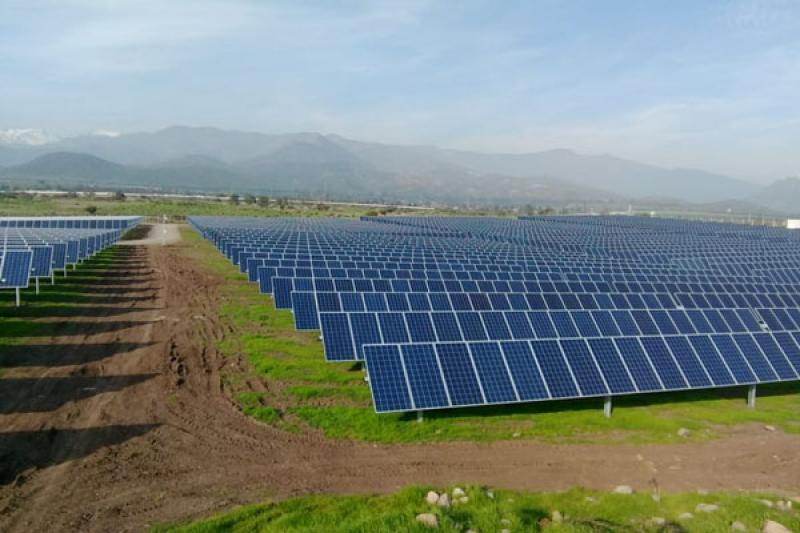Global Gateway investments improve supply chains around the world and help developing countries fight climate change
A gateway can be barred and reflect the hostility and fear of those who build it. Or it can be welcoming, open wide, a sign of friendship and confidence. Sven Röben knows which category applies to the European Union’s Global Gateway initiative.
“The Global Gateway really is at the core of what we at the European Investment Bank are doing outside the European Union,” says Röben, who specialises in development finance with the EIB Global arm of the European Investment Bank. “We are supporting the EU’s strategy of connecting Europe to the rest of the world.”
The European Commission set up Global Gateway in 2022 to narrow the international gap in infrastructure investment. The initiative will improve trade with international partners and invest in digital innovation, green energy, transport, healthcare and education. The goal is to improve the way countries work together and do business in these important sectors.
Many of the new global investments will involve big infrastructure improvements in roads, water, sanitation, mobile connections, vaccine manufacturing and higher education. The COVID-19 pandemic and the war in Ukraine revealed how quickly global trade can be disrupted. Global Gateway is creating stronger and more sustainable connections for goods, people and services to make international trade more resilient to future shocks and more sustainable.
The European Investment Bank has a long record of investing in green energy, digital innovation and infrastructure projects outside the European Union. Just a few of the recent Bank ongoing projects under Global Gateway are:
- A desalination plant in Jordan to pipe drinking water to the capital, Amman, which faces water shortages that are exacerbated by climate change
- A high-speed fibre-optic cable under the Mediterranean to offer better internet access to universities and research institutions in Morocco, Algeria, Tunisia and Egypt
- Fast Internet connections in remote areas of the Congo and Uganda
- Renewable energy investments to help Brazil, Peru and Chile advance in the green transition

Billions in global investment
Global Gateway is turning the European Green Deal into a Global Green Deal. The plan is to mobilise €300 billion in global investments from 2021 to 2027. Global Gateway will particularly help emerging countries in areas such as new electricity connections, new ports and railways, more modern telecommunications, infrastructure and digitalisation.
The European Investment Bank’s arm for operations outside the European Union, EIB Global, is working with programmes such as Global Gateway to “further enhance the impact and visibility of EU investments worldwide,” says Werner Hoyer, the EU bank’s president. “We are placing more bankers, engineers and economists on the ground, working within EU delegations, and are working hand in hand with the European Commission in the delivery of key European Union global and regional policies.”
The European Investment Bank’s deals under Global Gateway will be based on European values and standards, equal partnerships, and an alignment with the EIB Climate Bank Roadmap
Global Gateway combines financing for hard infrastructure with work to lay the foundations of this kind of investment, such as regulatory frameworks, norms and standards, technology training, and business development.
How is Global Gateway funded?
Global Gateway will be funded by the European Union, Member States and the European Investment Bank. It will seek to mobilise investment from the private sector, too. The main financial tool to mobilise investment under Global Gateway is the European Fund for Sustainable Development Plus. It will raise up to €135 billion worth of investment in a variety of Global Gateway sectors. This development fund is an innovative instrument that helps generate investment through guarantees covering the risks of large and small projects, and grants that are combined with long-term loans.
A new Global Gateway Fund of €400 million is planned for high-impact private sector investment. The European Investment Bank will invest €300 million of its own resources in the fund. Together with contributions from the European Fund for Sustainable Development Plus, this is expected to mobilise more than €4 billion of investment.
Investments that help partners
Global Gateway will promote relationships that allow partners to maintain their economic competitiveness. It will strengthen access to commodities, and in return, offer partnerships to countries beyond the European Union thorough investment in infrastructure. All countries are hurt when supply chains break down. For countries that already suffer disproportionately from climate change, food scarcity and hunger, supply chain problems threaten lives and economies.
“Everyone is talking about strategic autonomy in Europe, but our partners also want it,” Jutta Urpilainen, the European Commission’s executive vice-president for international partnerships, said at the EIB Group Forum in February. “They want resilience and independence.”
Independence, not indebtedness
International Monetary Fund figures show that more than half of low-income countries are in or at risk of debt distress, including many in Africa. This leads to the allocation of resources from public spending to debt payments, creating a vicious debt cycle. The Global Gateway initiative offers investments on attractive terms. It uses grants, loans and technical assistance to allow clients to operate as partners, rather than dependents.
Global Gateway is especially helpful to parts of Africa that have the hardest time making a green and digital transition. The European Commission announced €150 billion in European Union-financed investments for the Africa-Europe Investment Package in 2022. This is around 50% of the amount that Global Gateway aims to mobilise.
“Global Gateway is above all a geopolitical project, which seeks to position Europe in a competitive international marketplace,” European Commission President Ursula von der Leyen said in December 2022, during the first meeting of the Global Gateway Board. “It is a critical tool because infrastructure investments are at the heart of today's geopolitics. Partners around the world want to work with Europe. The first year of implementation shows the demand for sustainable investments that put the strategic autonomy of our partners at the heart of our offer.”
Global Gateway is critical to the European Union’s work around the world, she adds.
“The Global Gateway strategy is a template for how Europe can build more resilient connections with the world,” Von der Leyen says. “We will support smart investments in quality infrastructure, respecting the highest social and environmental standards, in line with the European Union’s values and standards.”
